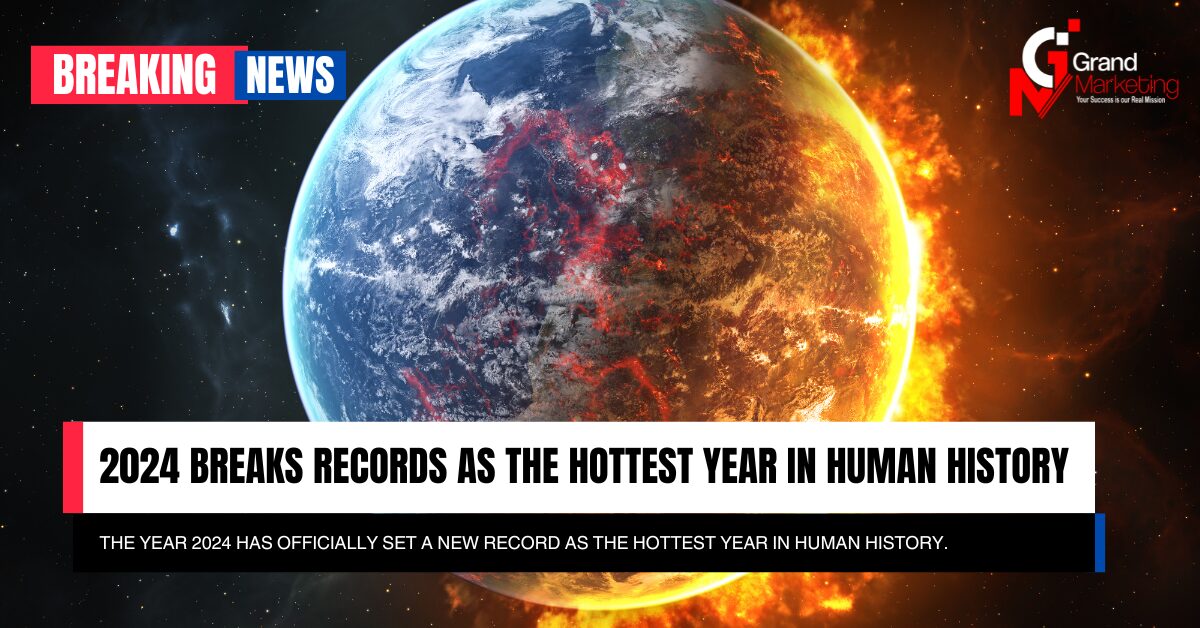Introduction:
The year 2024 has officially set a new record as the hottest year in human history.
Global temperatures in 2024 soared to an average of 1.5 degrees Celsius above pre-industrial levels, with the European climate agency, Copernicus, reporting an even higher figure of 1.6 degrees Celsius. This unprecedented increase highlights the alarming trajectory of global warming.
Why 2024 was the hottest year in human history ?
Scientists suggest that 2024 may not only be the hottest year on record but potentially the hottest in the past 100,000 years. Before this, 2023 held the title, with temperatures recorded at 1.48 degrees Celsius above pre-industrial levels.
The surge in global temperatures is primarily attributed to the extensive use of fossil fuels, including coal, oil, and gas. These activities continue to have devastating impacts on ecosystems, economies, and communities worldwide. Despite the ambitious goals of the 2015 Paris Agreement to limit warming to 1.5 degrees Celsius, this threshold has already been exceeded.
Data from Copernicus reveals shocking details about the intensity of 2024’s heat. On July 10, nearly 44% of Earth’s surface experienced extreme heat conditions. Furthermore, July 22, 2024, went down in history as the hottest day ever recorded.
Carbon dioxide emissions also hit unprecedented levels in 2024, underscoring the lack of significant progress in transitioning away from fossil fuels. The year’s temperature surge was initially driven by the El Niño phenomenon, a weather pattern that heats large parts of the Pacific Ocean and contributes to rising global temperatures. However, even after El Niño subsided, temperatures remained alarmingly high, suggesting that other unexpected factors may have intensified the warming.
The European climate agency emphasized that the effects of the climate crisis are now undeniable. Heat waves have reached an intensity and duration once considered unimaginable, pointing to the severity of the situation.
Experts caution that this is likely just the start of an ongoing trend, with future years expected to break new heat records. By the end of the 21st century, 2024 may ironically be remembered as one of the “cooler” years in a progressively warming world.





